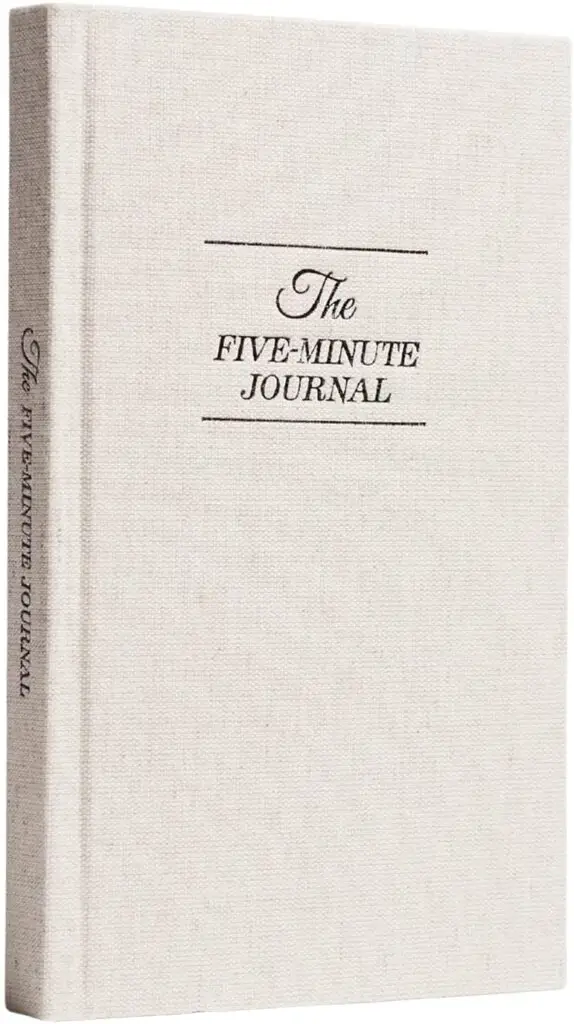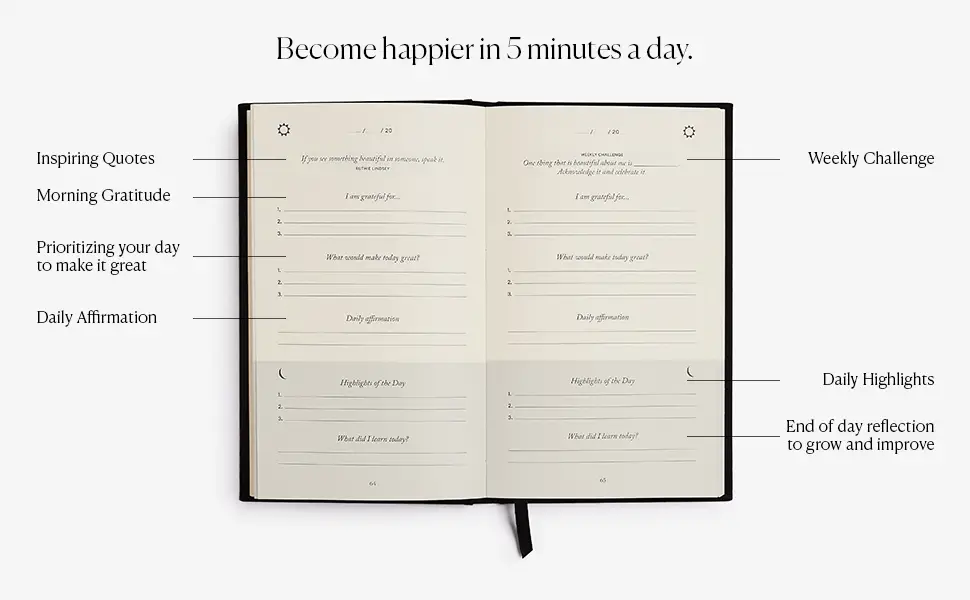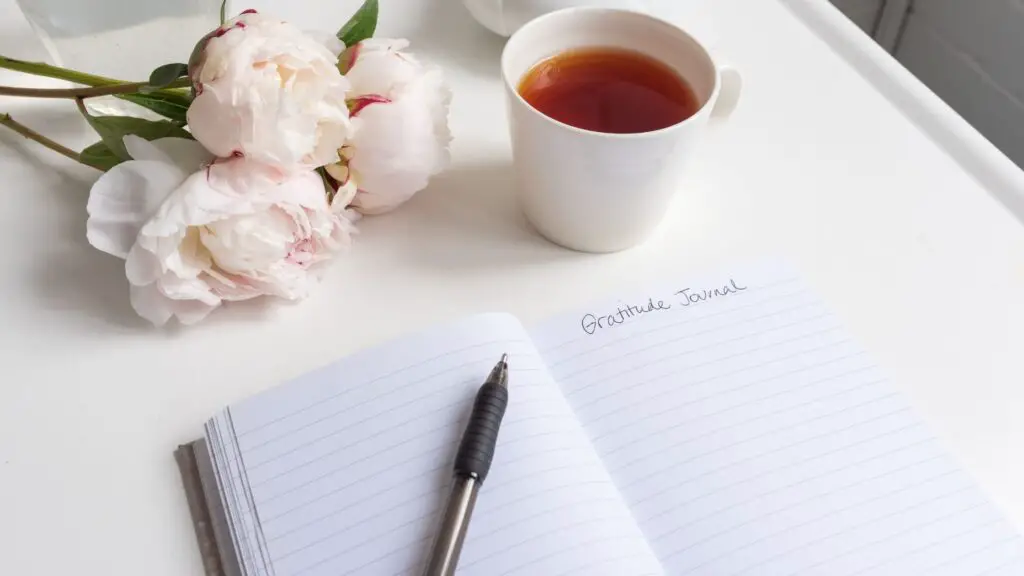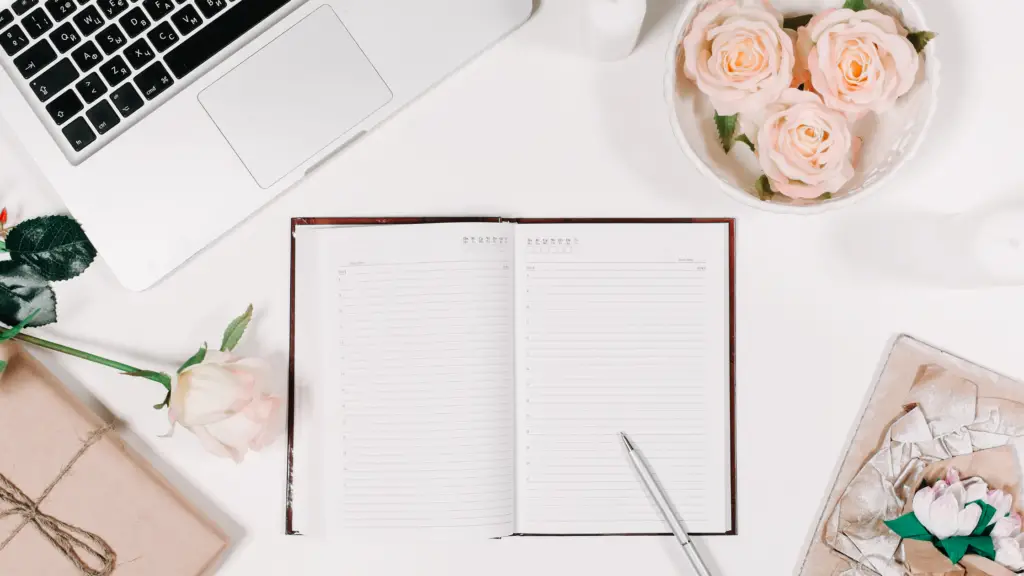Thinking of journaling but don’t know where to start? Read on to discover my practical journaling tips and the best journaling ideas for beginners!
I’ve always considered myself a writer, but surprisingly have not kept a journal in many years.
I’ve heard many good things about journaling, especially about how it can improve one’s mental health.
However, work and other commitments got in the way every time I wanted to start journaling.
Instead of pushing through and getting into the habit of journaling, I kept all of my thoughts in my head. As a result, I constantly felt overwhelmed and stressed.
Everything changed after my mother passed.
I was dealing with a lot of changes at that time, which caused me a lot of stress and anxiety. I was used to keeping my thoughts to myself but it became too much for me to bear.
I’d finally hit my breaking point after a year of grief.
That was when I decided to start journaling. At first, I documented everything that triggered me to feel sad or angry. I wanted to be able to pinpoint these moments so I could work on a healthier approach to facing these triggers.
When it became slightly too negative for me, I included a gratitude list.
Despite how busy I was, I continued to journal because it has truly transformed my life! I’ve learned how to overcome my anxiety and depression through journaling, and I want to help you to achieve the same results!
In this post, I’ll share:
- The benefits of journaling
- Journaling tips for beginners
- Journaling ideas for beginners
Related:
- How To Organize Your Life In One Week (Tried & Tested!)
- How To Create A Positive Atmosphere At Home In 10 Easy Ways

*Disclosure: This post may contain affiliate links that are at no additional cost to you, and I may earn a small commission if you purchase any products via my links. I only recommend products that I would use myself, and all opinions expressed here are my own. Read the full privacy policy here.
Not sure which journal to use? Try the best-selling five-minute journal.

There’s a reason why this five-minute journal is a cult favorite amongst many. Wait, make that many reasons. The journal:
- Is undated (you can use it anytime and it lasts for six months)
- Includes inspiring quotes to keep you motivated
- Has a weekly challenge
- Has 5 guided sections with prompts (morning gratitude, daily affirmation, highlights, and end of day reflection)
- Comes in 6 modern colors (my fav is the original cream version!)

If you have a busy schedule and you’re not very good at words, this journal (and its prompts) is PERFECT for you!
The benefits of journaling

Journaling has had such a positive impact on my life. Here are some of the reasons why journaling has made me a better person.
Reduces stress and anxiety
Writing about sadness, anger, and hurt can help to release the intensity of these negative emotions.
I often find that rehashing painful memories via writing helps me to stay calm. That’s because journaling helps to highlight our worries, fears, and insecurities. When you recognize these triggers, you can learn ways to better control them.
Besides that, journaling is similar to venting. Most of us feel better whenever we talk to our friends and family about our problems. Well, guess what? Journaling has the same effect!
Relieves depression
Journaling provides an opportunity for us to process our feelings rather than bottling everything inside.
When we overthink, our minds tend to think of the worst. I’m guilty of this!
Writing our emotions down helps to create self-awareness so that we can identify negative thoughts and behaviors.
Once I realized how negative my mindset was, I started to take control of my life. I put myself first and focused on the things that made me happy.
Journaling not only helped me to overcome my depression, but it also led to healthier habits like exercising and eating well.
Increases optimism and joy
After I discovered some of the triggers that made me sad or angry, I turned things around by including a daily gratitude list.
Doing this made me appreciate the positive things going on in my life. Sure, I have bad days (who doesn’t?), but I’m so thankful for so many things!
Having a daily gratitude list forces you to reflect on the good things every day. Through these reflections, my optimism and joy have increased tremendously.
Journaling Ideas For Beginners (How To Get Started & How To Keep Going)

Journaling tips for beginners
The thing with journaling is that it is very personal. What may work for others may not work for you and vice versa.
I have read and applied different journaling tips I read online but not all of them have worked. That’s because some of these tips are unrealistic and don’t consider our busy schedules!
Today, I’m going to share eight key tips that have helped me to stick to my journaling habit.
Use a journal that works best for you
The first step to being consistent in journaling is to use a journal that works best for you.
Although a lot of people recommend writing on paper, you need to find a journal that’s convenient for you. Otherwise, you won’t keep up with it.
I use the Notes app on my smartphone as a journal. As much as I enjoy writing, typing requires less effort. Plus, I don’t have to worry about my handwriting or deal with hand cramps while writing!
Try out a few methods and observe how it makes you feel. If you don’t want more screen time, use a paper journal. Want to access your journal anytime? Use your phone. Not good with words? Use a sketchbook and doodle away! (Just don’t forget to include some keywords!)
Don’t let the typical journaling method hold you back from doing what’s important – documenting your thoughts!
Write whenever you can
Your journal, your rules. This means you should write whenever you can!
I know some people say journaling in the morning has a ton of benefits. Again, this depends on your schedule. I know a lot of people who are not morning people and they struggle with doing anything remotely productive in the AM.
I journal at night because I like to reflect on my day and see what made me happy and what didn’t. It helps me to unwind at the end of the day and I find it therapeutic. If I’m too tired, I journal the next morning so that I don’t forget what happened the previous day.
Find the best time that works for you so that it will eventually become a habit.
Schedule time to journal
With that being said, you should schedule a time to journal. Or you might never make the time for it.
Journaling only when you’re depressed is going to highlight the worst parts of your life. On the other hand, journaling only when you’re happy is not going to help you through your bad days.
It’s important to be consistent and the only way you can achieve that is if you schedule journaling into your day.
During busy periods, journaling is on my to-do list every Sunday. It makes me feel good before I start a brand new week.
Track your journaling habit
Want to get the most out of journaling? You’re going to have to make it a habit.
Track your journaling habit by including it in your to-do list. Having it on the list pushes you to get it done – even on days when you don’t feel like it.
Eventually, journaling will be a part of your daily routine.
Don’t strive for perfection
Have you ever seen pictures of other people’s beautiful leather-bound notebooks and beautiful cursive handwriting and felt intimidated?
Maybe there’s a small percentage of people who are truly that neat. The rest of us probably have messy journals.
When it comes to journaling, don’t strive for perfection. You’ll only stress yourself out if you do, and you may stop journaling if you can’t stand the way it looks.
It’s OK to have ugly handwriting (as long as you can read it!) and a dog-eared notebook. Remember, it’s the content that matters!
Make journaling pleasurable
One way to practice consistency with journaling is to make it pleasurable.
If it’s part of your morning routine, journal when you’re sipping a cup of freshly brewed coffee in your favorite mug. If you’re like me and it’s part of your night routine, start writing after a nice hot shower and when you’re dressed in your cozy pajamas!
Soon, you’ll look forward to journaling because it has become part of the little things that make your day great.
Write for your eyes only
Whether it’s a physical or digital journal, make sure your journal is private.
You should be able to express yourself honestly in your journal. If there’s a chance that someone may stumble upon it, this may hinder you from telling the complete truth.
Don’t have a place to secure your journal? Use your phone or laptop instead and protect either device with a password!
Experiment until it feels right for you
When you’re starting, I suggest experimenting with different types of journals and different timings to write. You won’t know what feels right until you try.
You’ll know you’ve found the best fit for you once journaling becomes like second nature to you.
Journaling ideas for beginners

So, you’ve picked a journal and you’re ready to start. But, you don’t know what to write about! Believe it or not, this can happen to anyone!
Journaling can feel strange to people who aren’t used to expressing their feelings. If you’re having writer’s block, consider some of these journaling ideas for beginners:
Reflect on your day/week
This has been my go-to prompt since I started.
I use journaling as a way to identify the triggers behind my emotions; so having a daily/weekly reflection is essential. Ask yourself these questions:
- How did you feel today?
- What made you feel (emotion)? (Don’t forget to include your positive feelings too!)
- How did you react to the situation?
- What was your most mindful moment today?
- What were your top goals today? Did you achieve them?
- What did you do this week that moved you closer to reaching your goals?
Gratitude list
The easiest way to start journaling is to create a gratitude list. Think of all the things you are grateful for – big or small – and write them down! Top it off with why you’re grateful for each thing/person.
Manifest your dreams
Manifesting is the practice of thinking aspirational thoughts with the purpose of making them real. What better way to manifest than to write them down? Pen each dream down and the steps you’re going to take to make them happen.
A list of new things you want to try
Think of all the new things you want to try and write them down! It’s going to look like a bucket list, but you can take it one step further and write about how and when you’re going to try them. Or, better yet, WHY you want to try them.
Take a moment to be present
If thinking about the past or future stresses you out, take this time to be present. Engage all five of your senses when you’re journaling. Write down what you see, hear, smell, feel and taste. Start there and see where it takes you.
If you’re still feeling stuck, I recommend setting a timer for 15 minutes and having a go at documenting what’s on your mind. Chances are you’ll probably keep going even after 15 minutes.
If you’ve made it this far, I hope you are inspired by my journaling ideas for beginners! Do what’s best for you and hopefully, you’ll find journaling as therapeutic as I did.

